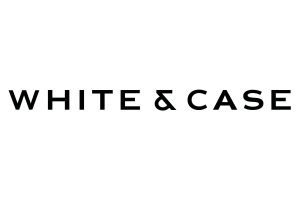Auditors play a key role in corporate governance, especially shareholder derivative litigation.
Their role in derivative litigation is critical in identifying corporate risks and transparency in financial reporting. If you’re interested in the intersection of auditing and legal accountability, you need to understand this role.
Having diligent auditors can impact the outcome of shareholder lawsuits. They provide an independent review of a company’s practices and can protect shareholders' interests by highlighting potential misconduct or mismanagement. Without auditors, shareholders can’t oversee and are hence more vulnerable to corporate risks.
Getting into the nitty-gritty of the auditors’ role will not only increase your knowledge but also help you navigate corporate governance better. The information shared here will explain how auditors help reduce risks and build trust in the corporate structure.
Key Points
- Auditors are required for transparency in corporate actions.
- They identify and address potential risks.
- Understanding their role helps in derivative litigation.
Auditors in Litigation
Auditors have a significant role in shareholder derivative litigation. Their expertise helps identify financial misconduct and corporate mismanagement, which can be key to these lawsuits.
Shareholder Derivative Litigation
Shareholder derivative litigation allows shareholders to sue on behalf of the corporation when they think its officers or directors have acted improperly. These suits arise from claims of fraud, breach of fiduciary duty, or mismanagement.
In this case, your auditors are key players. They provide an independent review of financial statements and operational practices. This independent review is vital in uncovering discrepancies or malpractice that may lead to litigation.
When audits uncover material issues, they can be critical evidence in these lawsuits. This strengthens the shareholders' position by highlighting financial risks and corporate governance failures.
Auditor’s Position
Auditors must be objective and independent in all engagements, especially when faced with potential litigation. Their findings can impact the decision to sue corporate executives.
You need to consider how auditors document their findings. Transparent reporting can impact derivative actions.
Auditors may also be required to testify. Their reports are the basis of the shareholders' claims. Good auditors establish credibility in their findings, so financial issues are well-documented and verifiable.
So auditors' role is not just about compliance. It’s about protecting the company and shareholders' interests.

Auditors in Derivative Litigation
Auditors are key in shareholder derivative litigation by finding financial errors, ensuring compliance, and holding corporations accountable. Their role is critical in managing risk and transparency.
Material Misstatements
Auditors must identify and assess material misstatements in financials. This means reviewing accounting records, internal controls and financial reporting standards.
When auditors find big mistakes, they must tell the board and shareholders. By fixing material misstatements, you protect the integrity of financial reporting and reduce the risk of litigation.
Compliance and Transparency
An auditor’s role is to ensure compliance with laws, regulations and corporate governance standards. This means evaluating the company's internal controls and risk management processes.
Your role is not just to verify compliance but to recommend improvements that promote transparency. By ensuring financials are accurate and reliable, you protect shareholder interests and contribute to a more trustworthy corporate environment.
Holding Executives and Board Accountable
Auditors hold corporate executives and board members accountable. This is done through regular audits and independent reviews of financial practices.
When auditors are transparent they hold management accountable for their financial decisions. This can prevent misbehaviour and reassure shareholders their interests are being looked after. Clear communication of findings to stakeholders creates a culture of accountability and trust in the organization.
Auditors as Expert Witnesses
In shareholder derivative litigation, auditors often act as expert witnesses, providing critical evidence that can swing a case. Their financial and corporate governance expertise makes them a valuable asset in court.
As expert witnesses, auditors can:
- Explain complex financials to judges and juries
- Provide professional opinions on accounting practices
- Analyse and interpret financial data relevant to the case
- Assess internal controls and risk management systems
Auditors’ credibility as expert witnesses comes from their professional training, experience and adherence to strict auditing standards. Their evidence can show whether corporate actions were reasonable, compliant with rules and in the best interests of shareholders.
But being an expert witness isn’t without its challenges. Auditors must remain objective and independent even under intense cross-examination. They must be able to defend their findings and methodologies and clearly explain complex financials to non-experts.
Technology and Auditing and Litigation
Technology has moved so fast that it’s changed the auditing landscape and how auditors participate in shareholder derivative litigation. It’s brought new opportunities and challenges in finding and managing corporate risk.
Technology impacts
- Data Analytics: Advanced analytics tools allow auditors to look at large amounts of financial data quickly and accurately. This means they can find anomalies and potential fraud sooner and provide stronger evidence in litigation.
- Artificial Intelligence (AI) and Machine Learning: These technologies can find patterns and predict potential risks that wouldn’t be seen through traditional auditing. This proactive approach can prevent corporate misbehaviour before it leads to litigation.
- Blockchain: Blockchain in financial transactions creates an unchangeable record, reduces the risk of fraud and simplifies the audit trail. This means stronger evidence in shareholder derivative claims.
- Cybersecurity: As companies go digital auditors need to assess cybersecurity risk. Failure in this area can lead to data breaches and subsequent litigation so it’s a key part of modern auditing.
While these technologies bring many benefits, they also bring new challenges. Auditors need to keep their skills up to date to use these tools effectively and understand their boundaries. They also need to be able to explain these complex technologies and their implications in the context of litigation.
As technology moves forward, the role of auditors in managing corporate risk and shareholder derivative litigation will become even more important and complex.
Conclusion
Auditors' role in managing corporate risk in shareholder derivative litigation is many-faceted and getting more complicated. From financial accuracy and compliance to expert witness and technology, auditors are key to corporate accountability and shareholder protection.
As the corporate landscape changes, the importance of skilled, independent auditors in finding risk, uncovering misbehaviour, and supporting fair and transparent litigation processes can’t be overstated. Their work resolves current disputes and builds more robust, ethical, and accountable corporate structures for the future.






















